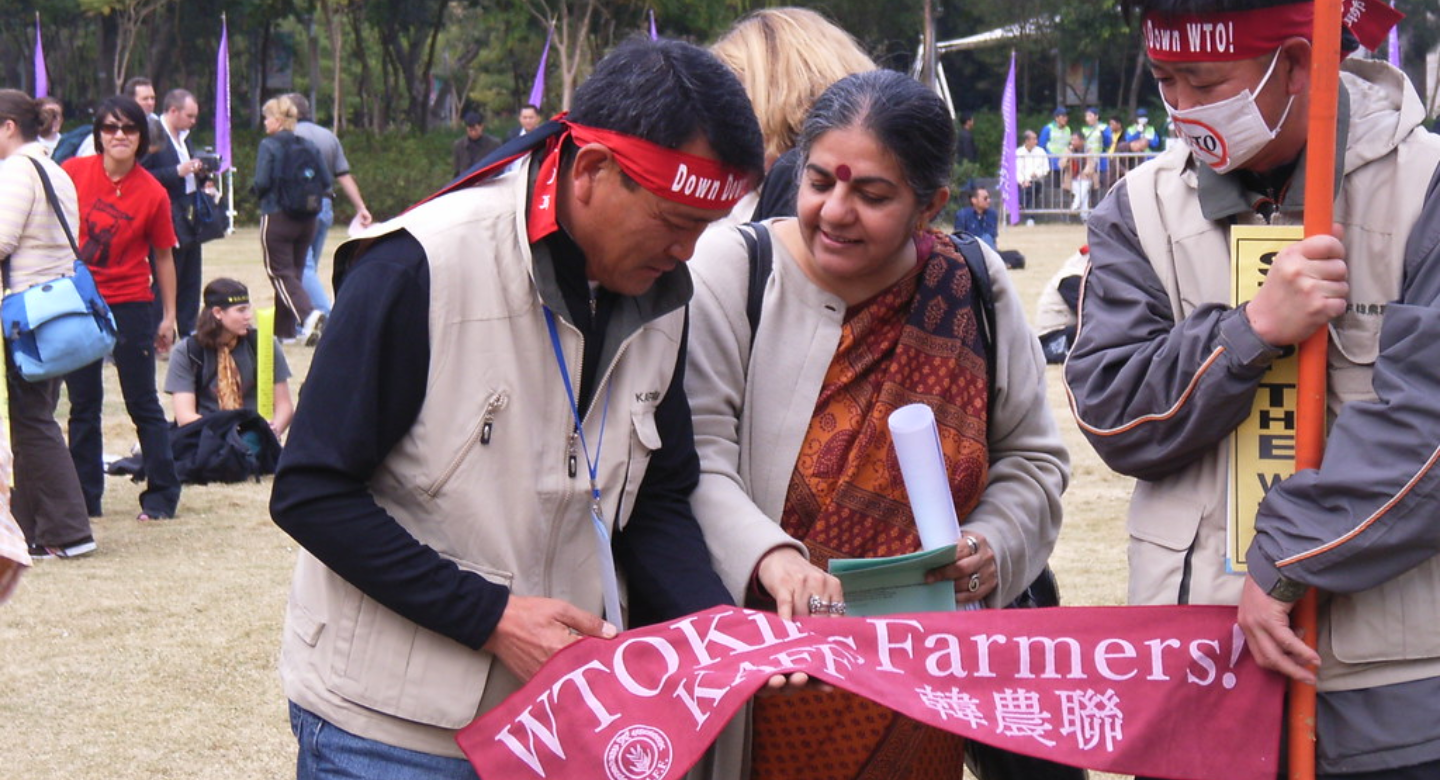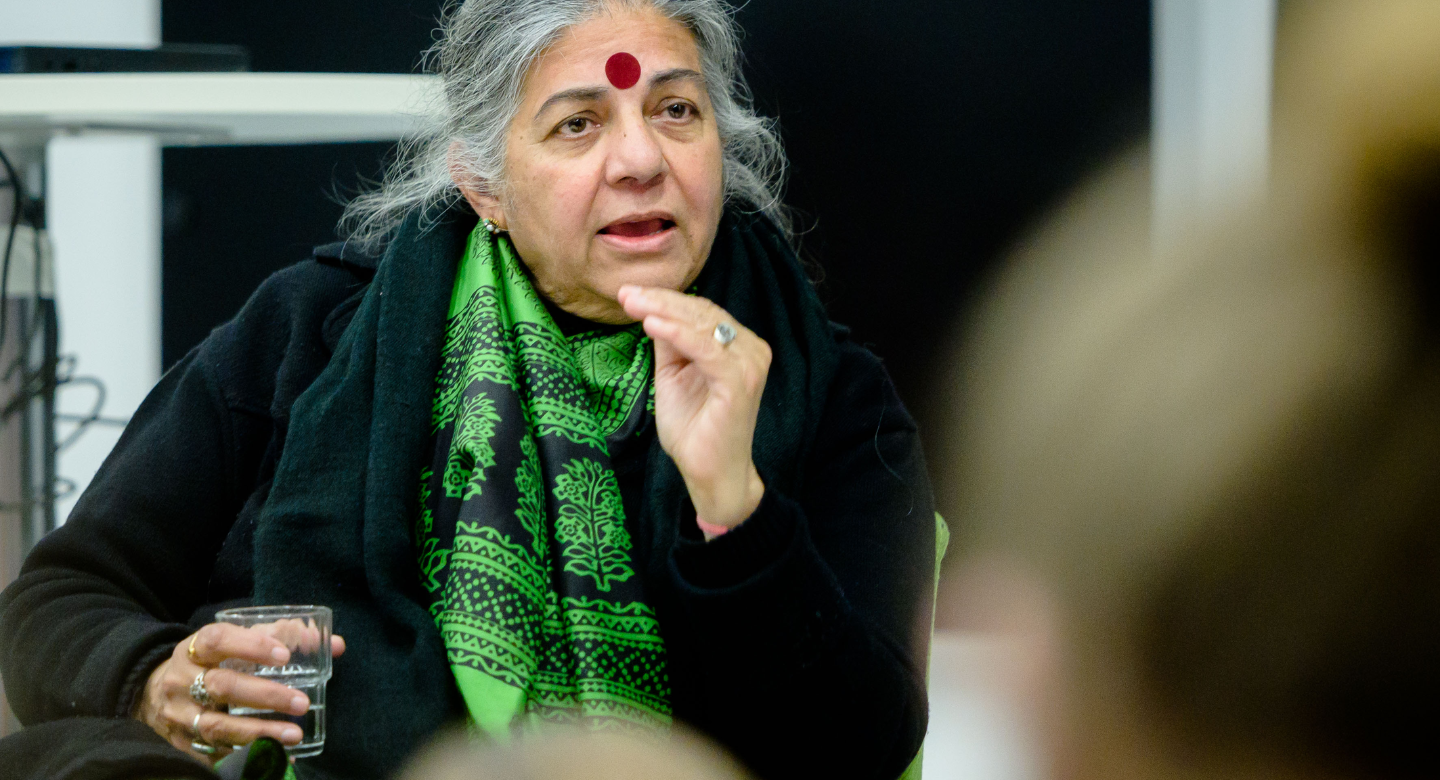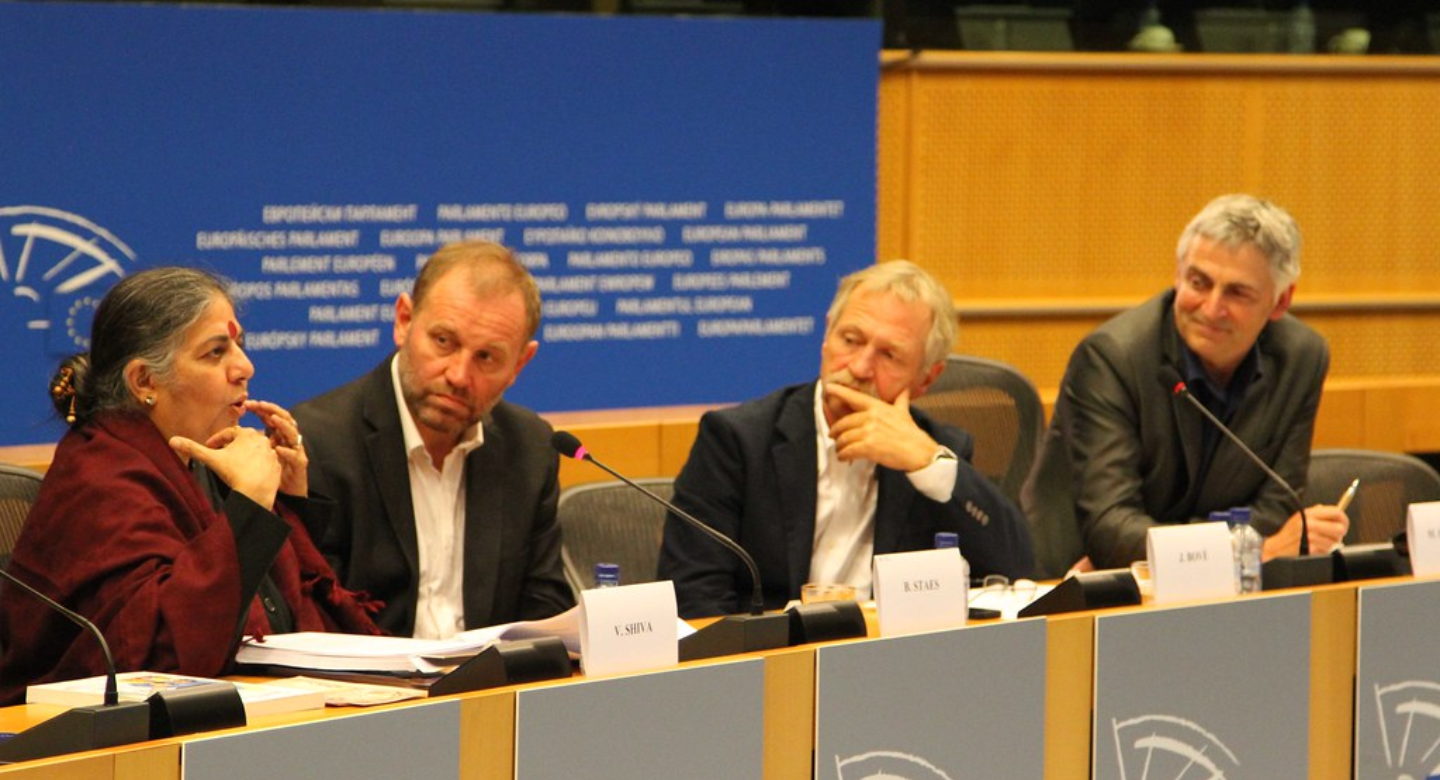Vandana Shiva – The Voice of Ecological Sustainability
In the realm of environmental activism, few voices resonate with the clarity and conviction of Dr. Vandana Shiva. Born in 1952 in Dehradun, India, Shiva’s journey from physicist to globally recognized environmental activist represents one of the most compelling narratives in modern ecological advocacy. Her work spans multiple disciplines, combining scientific rigor with passionate advocacy for traditional farming practices, biodiversity protection, and resistance against corporate control of agriculture.
Table of Contents
Toggle
Dr. Shiva’s early academic background—a Ph.D. in Quantum Physics from the University of Western Ontario—might seem distant from her current focus on seeds, soil, and farmers’ rights. However, this scientific foundation has enabled her to challenge dominant agricultural paradigms with both philosophical depth and empirical precision. Shiva’s transition to environmental activism began in the 1970s when she participated in the grassroots Chipko movement, where women in the Himalayan region protected forests from commercial logging by embracing trees.
The Navdanya Movement: Preserving Seeds and Sovereignty

Perhaps Shiva’s most influential contribution has been the establishment of Navdanya in 1987, an organization whose name translates to “nine seeds” in Hindi, symbolizing the protection of biological and cultural diversity. Navdanya functions as a network of seed keepers and organic producers spread across 22 states in India. The organization has established over 150 community seed banks, trained more than 900,000 farmers in sustainable agriculture, and conserved more than 3,000 rice varieties.
Through Navdanya, Shiva has pioneered the concept of “seed freedom,” challenging the corporate patenting of seeds and the proliferation of genetically modified organisms (GMOs). Her work has highlighted how traditional agricultural knowledge, passed down through generations of farmers, contains sophisticated ecological wisdom that modern industrial agriculture often overlooks.
Confronting Corporate Agriculture: The Fight Against “Biopiracy”
Dr. Shiva coined the term “biopiracy” to describe the practice of multinational corporations patenting traditional knowledge about plants and their medicinal properties without compensating the indigenous communities who developed this knowledge. Her activism has included high-profile campaigns against corporations attempting to patent traditional Indian crops and medicinal plants.
In 1997, Shiva led a successful challenge against a U.S. patent on the fungicidal properties of neem, a tree native to India whose medicinal uses have been documented in Indian texts dating back centuries. After a ten-year legal battle, the European Patent Office revoked the patent, marking a significant victory against biopiracy and establishing a precedent for protecting traditional knowledge.
Earth Democracy: A Philosophical Framework

Beyond specific campaigns, Shiva has developed a comprehensive philosophical framework she calls “Earth Democracy.” This vision integrates environmental sustainability, social justice, and peace. Earth Democracy advocates for living economies that protect local livelihoods, living cultures that defend diversity, and living democracies that ensure every person has a voice in decisions affecting their lives.
In her book “Earth Democracy: Justice, Sustainability, and Peace” (2005), Shiva articulates how globalization and industrial agriculture have disrupted the natural cycles that sustain life, exacerbating poverty and ecological degradation. Her alternative vision prioritizes local economies, biodiversity, and the rights of nature itself.
The Critique of Industrial Agriculture and the Green Revolution
One of Shiva’s most controversial positions has been her sustained critique of the Green Revolution—the introduction of high-yielding crop varieties, synthetic fertilizers, and pesticides that transformed Indian agriculture beginning in the 1960s. While proponents credit the Green Revolution with preventing widespread famine, Shiva argues that it created dependency on external inputs, undermined soil health, reduced biodiversity, and ultimately contributed to a crisis in Indian agriculture, including farmer indebtedness and suicide.
In works like “The Violence of the Green Revolution” (1991), Shiva documents how the transition to industrial agricultural methods has damaged ecological systems and social structures in rural India. Her research connects agricultural policy to broader issues of water scarcity, climate change, and the displacement of small-scale farmers.
The Research Foundation for Science, Technology and Ecology

In 1982, Shiva founded the Research Foundation for Science, Technology and Ecology (RFSTE), an organization dedicated to developing alternatives to industrial agriculture based on principles of biodiversity and indigenous knowledge. Through RFSTE, Shiva has conducted extensive research on the ecological impacts of agricultural practices, the economics of small-scale farming, and the relationship between food sovereignty and democracy.
The foundation has been instrumental in documenting the negative consequences of industrial farming methods, including soil degradation, groundwater depletion, and the loss of crop diversity. This research has provided scientific backing for Shiva’s advocacy work and has informed policy debates about agricultural development in India and beyond.
Bija Vidyapeeth: Educating for Earth Citizenship
Recognizing the importance of education in fostering ecological awareness, Dr. Shiva established Bija Vidyapeeth (School of Seed) in 2002 in Doon Valley, Uttarakhand. This Earth University offers courses in sustainable agriculture, biodiversity conservation, and seed saving. The campus itself serves as a living laboratory, demonstrating ecological farming practices and hosting workshops for farmers, students, and activists from around the world.
Bija Vidyapeeth embodies Shiva’s belief that addressing environmental challenges requires not just technical solutions but a fundamental shift in consciousness—what she calls “earth citizenship.” The curriculum integrates traditional knowledge with contemporary science, emphasizing the interconnectedness of ecological and social systems.
Global Influence and Recognition

Shiva’s influence extends well beyond India. She serves on the boards of numerous international organizations, including the World Future Council and the International Forum on Globalization. She has addressed the United Nations, the World Economic Forum, and countless international conferences, bringing attention to the environmental and social costs of globalized agriculture.
Her work has been recognized with numerous awards, including the Right Livelihood Award (often referred to as the “Alternative Nobel Prize”) in 1993, the Sydney Peace Prize in 2010, and the MIDORI Prize for Biodiversity in 2016. These accolades reflect her significant contributions to environmental thought and action.
Critiques and Controversies
As with any influential figure, Shiva’s work has not been without controversy. Some scientists and development experts have criticized her blanket opposition to genetic engineering, arguing that her positions sometimes oversimplify complex scientific issues. Critics suggest that her rejection of certain agricultural technologies may limit options for addressing food security in a changing climate.
Others have questioned specific claims she has made about the relationships between GMOs, farmer suicides, and crop yields. These debates highlight the complex intersection of science, policy, and values in agricultural development.
Despite these criticisms, Shiva’s fundamental insights about the importance of agricultural biodiversity, the rights of small-scale farmers, and the risks of corporate control over food systems remain influential in global discussions about sustainable development.
Literary Contributions and Intellectual Legacy
Dr. Shiva has authored over twenty books that have shaped discourse on environmental justice, feminism, and globalization. Works such as “Staying Alive: Women, Ecology and Development” (1988), “Monocultures of the Mind” (1993), and “Water Wars” (2002) have become foundational texts in environmental studies and political ecology.

In “Staying Alive,” she develops an ecofeminist analysis that connects the marginalization of women with environmental degradation, arguing that both stem from reductionist worldviews that privilege mechanistic understanding over holistic wisdom. This work established Shiva as a leading voice in ecofeminist thought.
“Monocultures of the Mind” critiques the epistemological foundations of modern science and development, arguing that Western knowledge systems have systematically devalued indigenous knowledge and promoted intellectual monocultures that mirror agricultural monocultures. This analysis connects cultural diversity to biological diversity, suggesting that the protection of both is essential for sustainable futures.
Climate Change Activism and Food Sovereignty
In recent years, Shiva has increasingly focused on the connections between industrial agriculture, fossil fuel dependence, and climate change. She argues that agroecological farming methods can help mitigate climate change by sequestering carbon in soils while also building resilience to changing weather patterns.
Through her concept of “food sovereignty,” Shiva advocates for the rights of communities to define their own food systems rather than being subject to the dictates of international markets and corporations. This approach emphasizes local control, cultural appropriateness, and ecological sustainability as key principles for food system design.

Personal Life and Continuing Activism
Despite being in her seventies, Dr. Shiva maintains an active schedule of writing, speaking, and organizing. She lives simply, often returning to her home in Dehradun between international engagements. Her son, Kartikey Shiva, has followed in her footsteps, working on issues of biodiversity and indigenous knowledge.
Dr. Shiva’s personal commitment to her principles is evident in her lifestyle choices and in the consistent application of her values across multiple domains. Her work continues to evolve, responding to emerging challenges while remaining grounded in her core commitment to justice, sustainability, and the protection of life’s diversity.
Conclusion: The Enduring Relevance of Vandana Shiva’s Vision
As humanity grapples with intersecting crises of climate change, biodiversity loss, and social inequality, Vandana Shiva’s decades of work offer important insights and alternatives. Her holistic vision connects environmental health with social justice, traditional knowledge with scientific innovation, and local action with global change.
Whether or not one agrees with all of her positions, Shiva has undeniably expanded the conversation about agricultural development, challenging dominant narratives and amplifying the voices of those most affected by environmental degradation. Her persistent advocacy for biodiversity, farmers’ rights, and ecological sustainability has helped shape a global movement for food sovereignty and environmental justice.
In a world increasingly characterized by technological optimism and corporate concentration, Vandana Shiva’s unwavering defense of the commons, biodiversity, and democratic control over food systems provides a necessary counterpoint and a vision of alternative futures grounded in ecological wisdom and social equity.
Discover Other Such Blogs
Patanjali Jha – Creating Food Forests for Livelihood & Ecology
D. Saravanan – Transforming Barren Land into a Thriving Forest
Sonam Wangchuk – The Changemaker Fighting Climate Change






